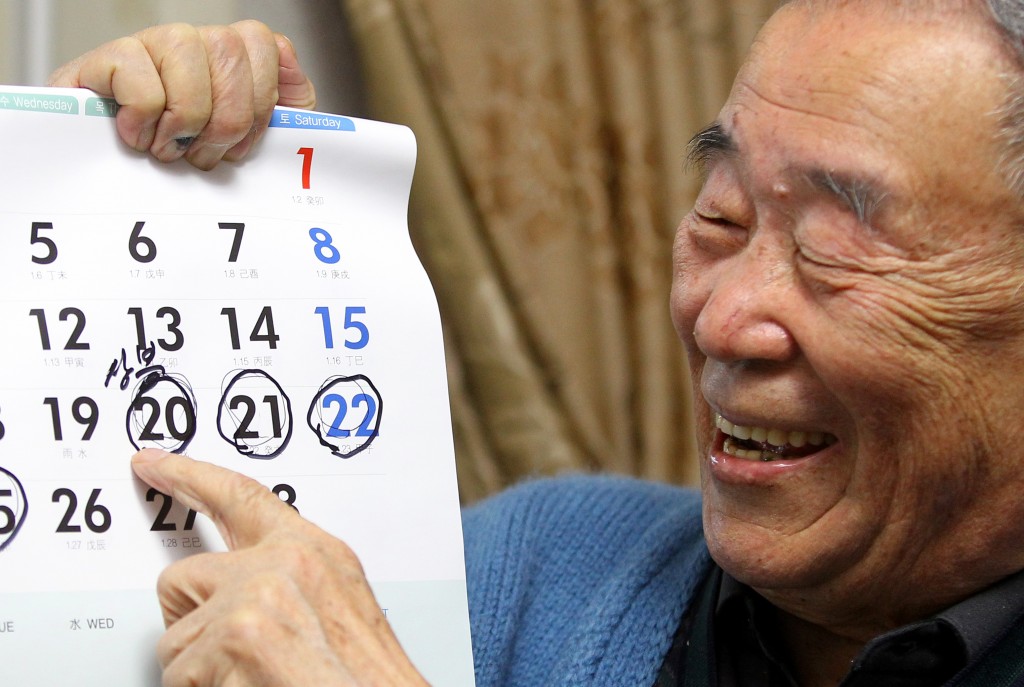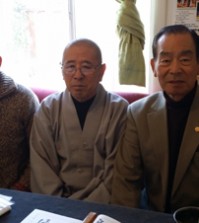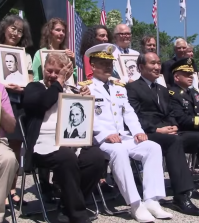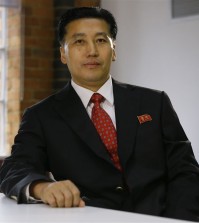- California Assembly OKs highest minimum wage in nation
- S. Korea unveils first graphic cigarette warnings
- US joins with South Korea, Japan in bid to deter North Korea
- LPGA golfer Chun In-gee finally back in action
- S. Korea won’t be top seed in final World Cup qualification round
- US men’s soccer misses 2nd straight Olympics
- US back on track in qualifying with 4-0 win over Guatemala
- High-intensity workout injuries spawn cottage industry
- CDC expands range of Zika mosquitoes into parts of Northeast
- Who knew? ‘The Walking Dead’ is helping families connect
Koreas agree to hold family reunions this month
(Yonhap) — South and North Korea agreed Wednesday to stage reunions later this month for families separated by the 1950-53 Korean War.
The reunions — the first since October 2010 — will be held at Mount Kumgang, a scenic resort on North Korea’s east coast, from Feb. 20 to 25, according to the unification ministry official.
The deal is the first sign of progress in improving inter-Korean relations that have worsened due to the North’s military threats against the South in recent months. North Korea’s chief delegate Pak Yong-Il said that the Red Cross meeting “is a very important starting point for improving the North-South relations.”
Pak made the comments at the beginning of the meeting at the border village of Panmunjom, according to a brief audio file released by the unification ministry, which handles inter-Korean affairs.
The planned reunions coincide with South Korea’s annual joint military exercises with Washington, which are set to run from late February through April. North Korea has pressed South Korea to scrap the drills, condemning them as a rehearsal for a nuclear war against it.
Seoul and Washington have vowed to go ahead with the exercises, calling them defensive in nature.
The North had indicated that the reunions could not be held “amid gunfire,” referring to the military drills.
Last year, the sides agreed to hold family reunions at Mount Kumgang, but Pyongyang abruptly called them off at the last minute.
Family reunions are a highly emotional issue on the divided peninsula, as most of the separated family members are in their 70s and 80s, and wish to see their long-lost relatives before they die. There are no direct means of contact between ordinary civilians of the two countries that remain divided by a heavily fortified border.
The divided Koreas have held more than a dozen rounds of reunions since their landmark summit in 2000, bringing together more than 21,700 family members who had not seen each other since the Korean War.
















